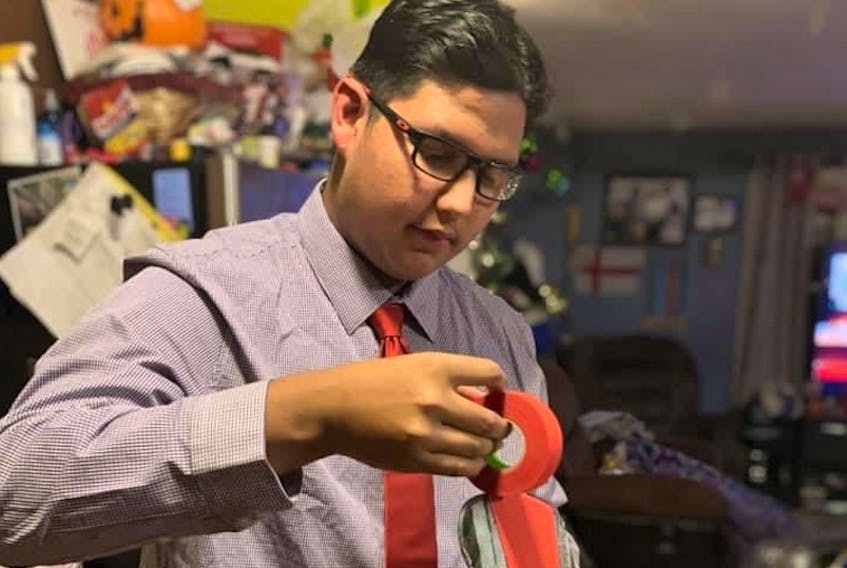SYDNEY, N.S. — When 17-year-old Logan Prosper looks back over his years in minor hockey, his memories include more than the wins and losses on the ice.
He remembers the many times he’s been subjected to racist taunts by players and even spectators.
“I understand how people feel not welcome in hockey. When I first tried out for bantam was when I got my first racist comments, they called me a ‘dirty native' and I wanted to quit hockey,” he says. That was five years ago.
Prosper is now a forward on the Cape Breton West Islanders. He made headlines in December 2019 when he and his family filed a complaint with Hockey Nova Scotia after an incident involving a player on the opposing team during a game in Cheticamp.
“He said, ‘You’re a turd, all natives in helmets look like turds,’” recalls Prosper.

The incident was investigated by Hockey Nova Scotia, which found that the insulting remark was made, but that it was not racist in nature. Despite the claim, the hockey organization formed the diversity and inclusion task force at the end of 2019 to address an increase in reported cases of verbal abuse and discrimination locally and internationally.
Dean Smith, the chair of the task force, says it will release its recommendations late next month, based on a province-wide survey of the hockey community and the general public, as well as consultation with experts. He says three barriers to participation stood out in the feedback: time commitment, cost and the most challenging one, he says, a sense of belonging.
“When it comes to racialized families, if cost were the only concern then that could be solved but there are many other issues confronting racialized families as well. We’re not fooled by the fact that racism will likely remain in the game. I think the big question is how Hockey Nova Scotia and minor hockey associations choose to address it.”
Smith says more education and awareness are needed, along with stronger disciplinary actions to prevent the kind of discrimination Prosper experienced.
“I think we probably could have benefitted from more public outrage in respect to some of these incidents, but what we’ve been hearing through the survey is that Nova Scotians do feel strongly that racism and discrimination have no place in the game and that regulators like Hockey Nova Scotia and their branch minor hockey associations should proactively address the issues."
'I understand how people feel not welcome in hockey.' — Logan Prosper
He says it will be up to Hockey Nova Scotia to accept the recommendations and put them into action.
In the meantime, Prosper says he’s already noticed a big difference this season and that officials are less tolerant of what’s known as chirping on the ice. His father, Phillip Prosper, agrees.
“Even any swear words, if somebody swears on the ice, it’s a penalty right away now. (It) seems like players are getting penalized more for what they’re saying, not just for what they’re doing and that’s a good thing.”
Logan Prosper's experience inspired players across the country to wrap their hockey sticks in red tape to show their support of Prosper and ending racism in the game.
This season will be Logan Prosper’s last in minor hockey and he’s planning to attend Saint Mary’s University in the fall. He hopes the changes coming and the positive changes he’s already seen will create a more welcoming environment for the younger players coming up.
“I’m not glad it happened, that I had to be the one to make the change, but I’m glad it’s better.”
Ardelle Reynolds is an Indigenous affairs reporter with the Cape Breton Post.









